Update 1
In just over a decade's time, pure-petrol cars will be exclusive to the used market. Actually, that point could come even sooner.
The new Labour administration is discussing plans to bring back the original 2030 ban on new internal-combustion-engined car sales (it was pushed back five years by the Conservatives last year) and some automotive timelines are prioritising electrified vehicles by the time we enter the 2030s.
This all means that cars such as our new Skoda Kamiq, with its 1.5-litre four-cylinder turbocharged petrol engine (that's right: no hybrid assistance here), are a dying breed. So we're here to find out, over the coming months, if such powertrains will be missed.
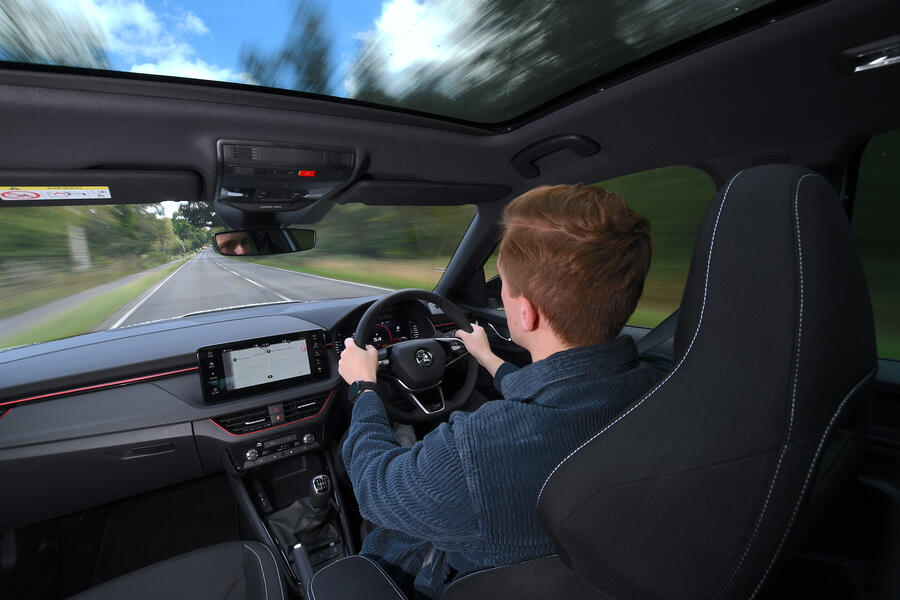
To introduce you, the Kamiq is Skoda's smallest 'big' car, sitting below the Karoq, Kodiaq and electric Enyaq. It was launched in 2019 and refreshed last year (it's not conventionally pretty, giving off Star Wars Stormtrooper vibes), and it's positioned as a raised and slightly roomier alternative to the Scala. Its target market is smaller families shopping in the highly populated B-SUV segment.
Being a Skoda, the Kamiq is priced very competitively, from just £24,040 (which gets you a 94bhp 1.0-litre turbo petrol triple and five-speed manual). That positioning has pushed it to become one of the Czech brand's best-sellers in the UK, matching the stalwart Octavia with some 16,000 sales since the start of last year.
Our car is the top-rung Monte Carlo Kamiq. Sounds sporty, right? Well, think less Toyota GR Yaris and more Yaris GR Sport: this is style over substance. So while nothing changes underneath, inside you get squidgy, bucket-like sports seats, a panoramic glass roof, dual-zone climate controls and a 10.25in digital driver's display.

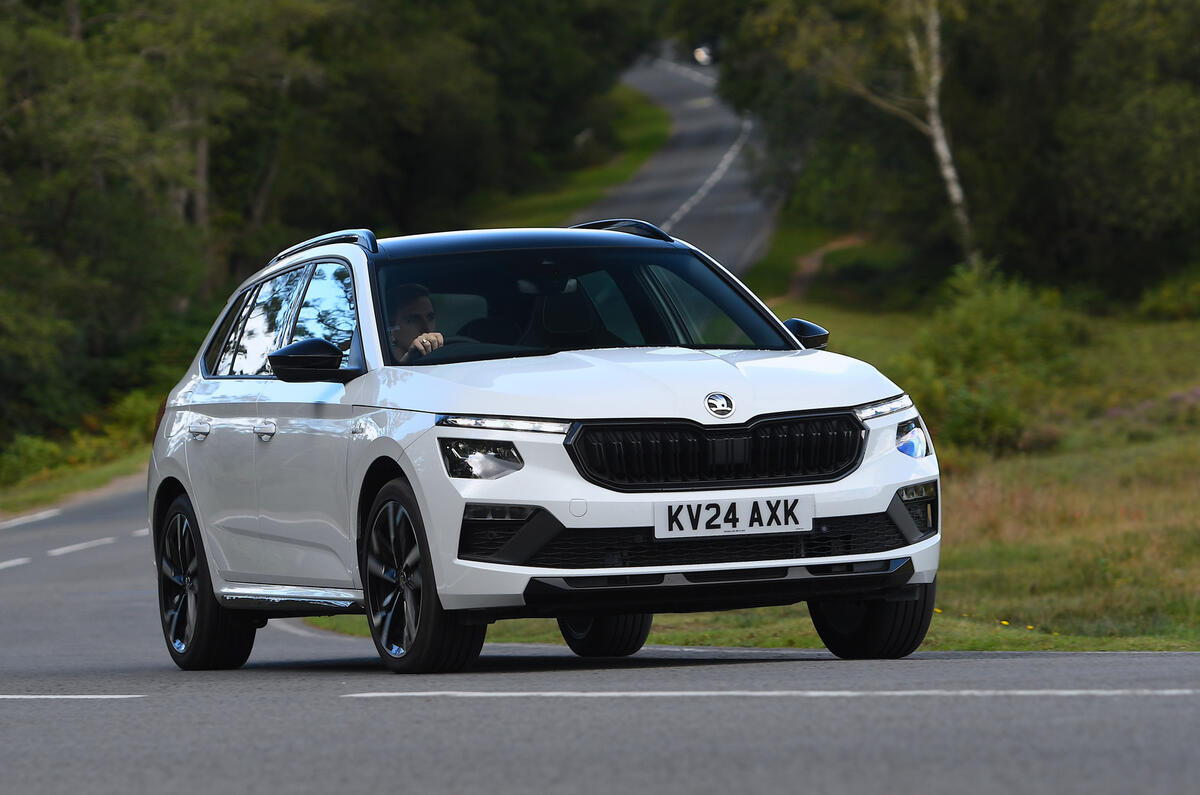

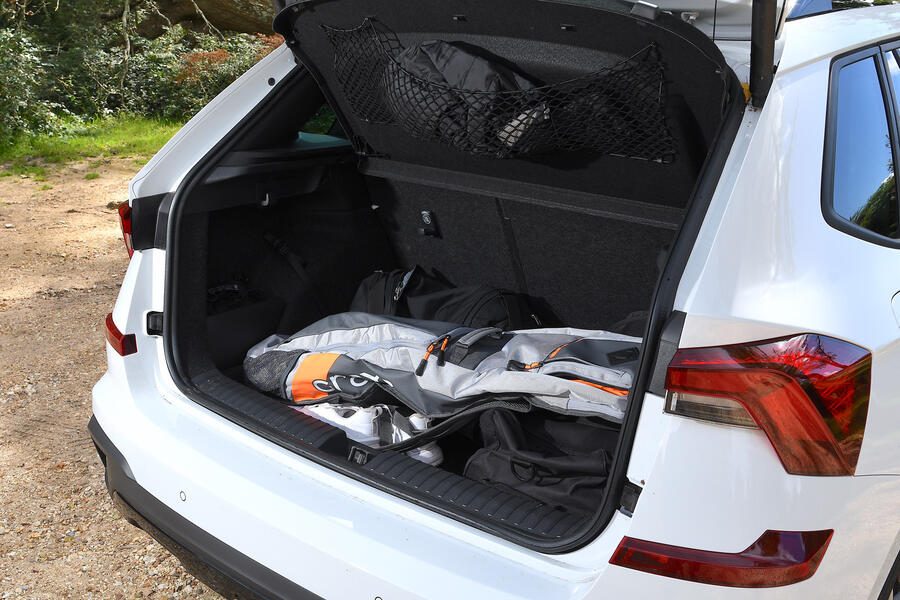
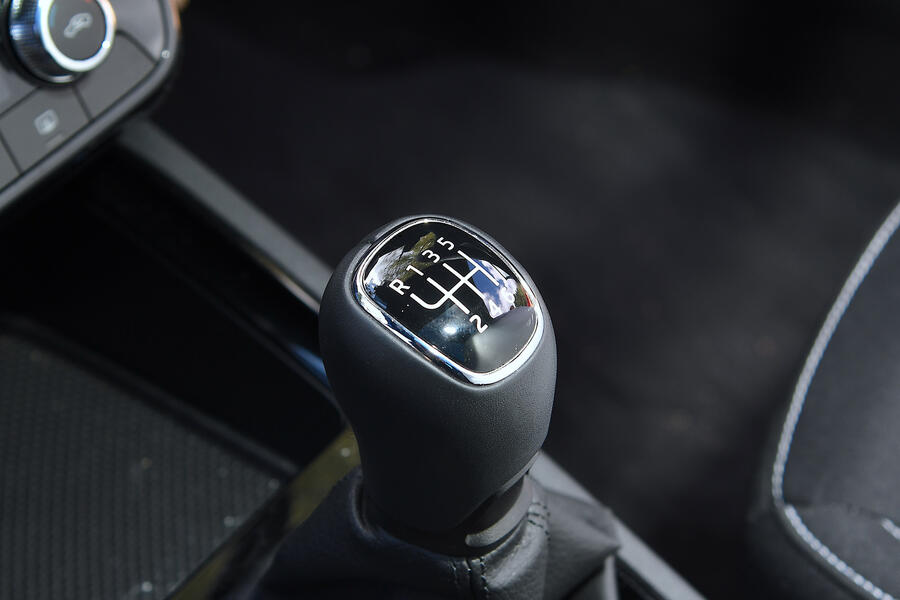
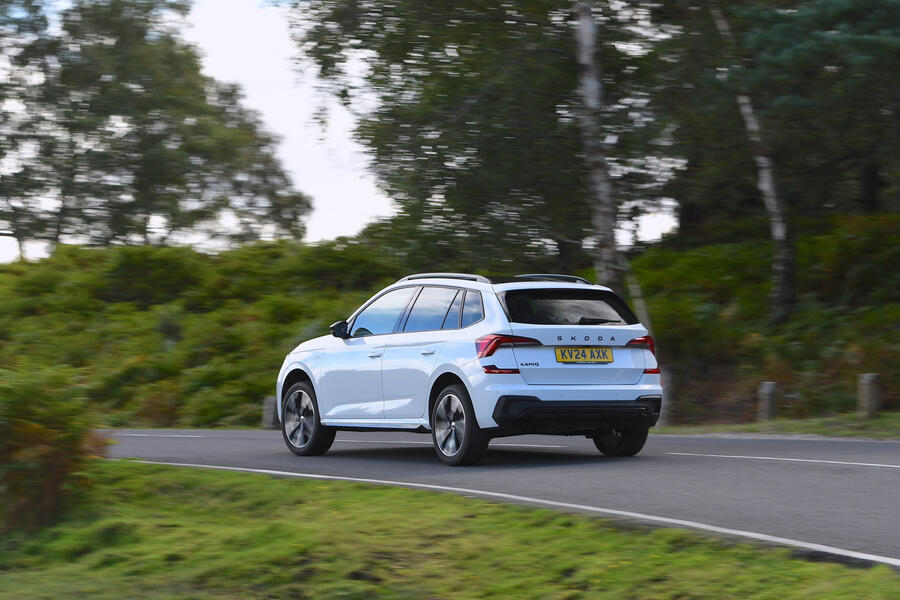
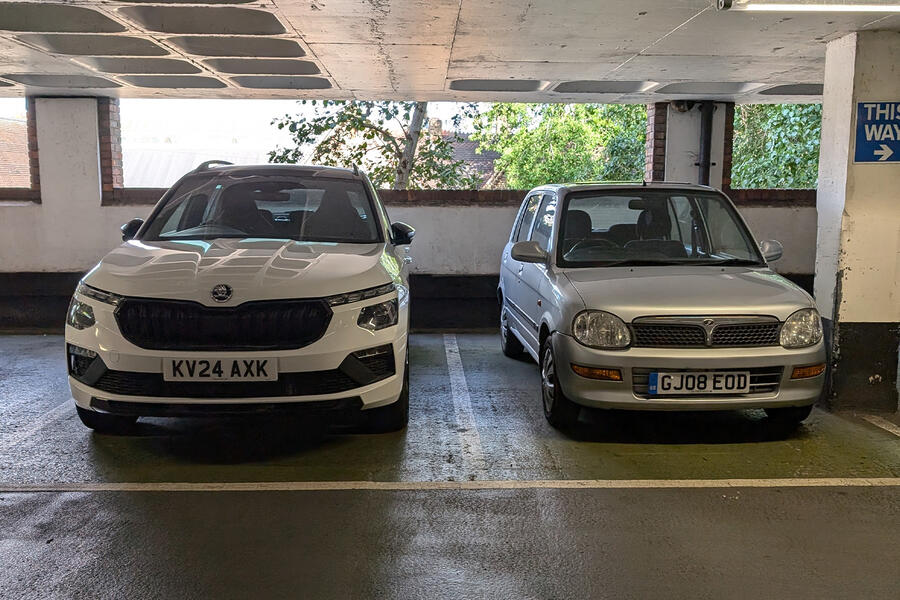
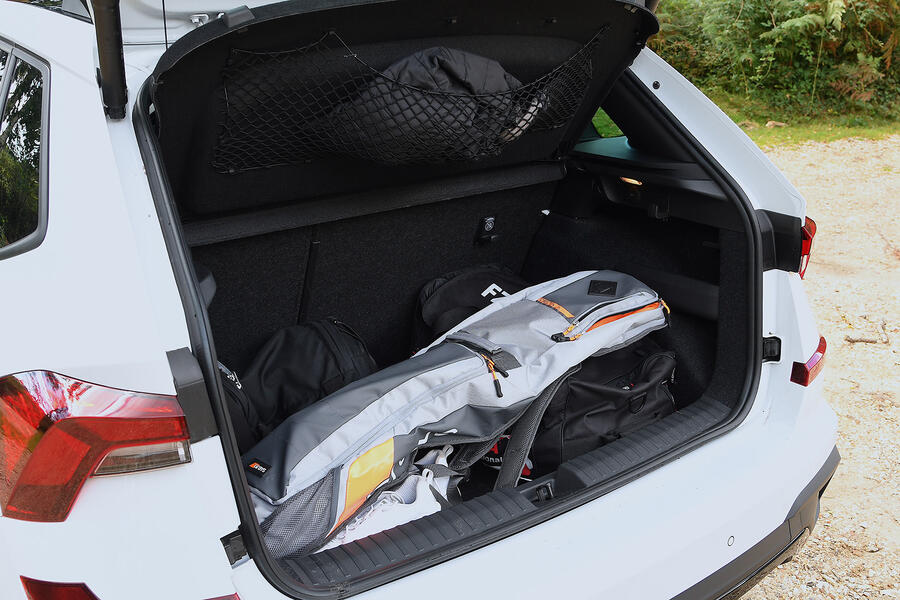

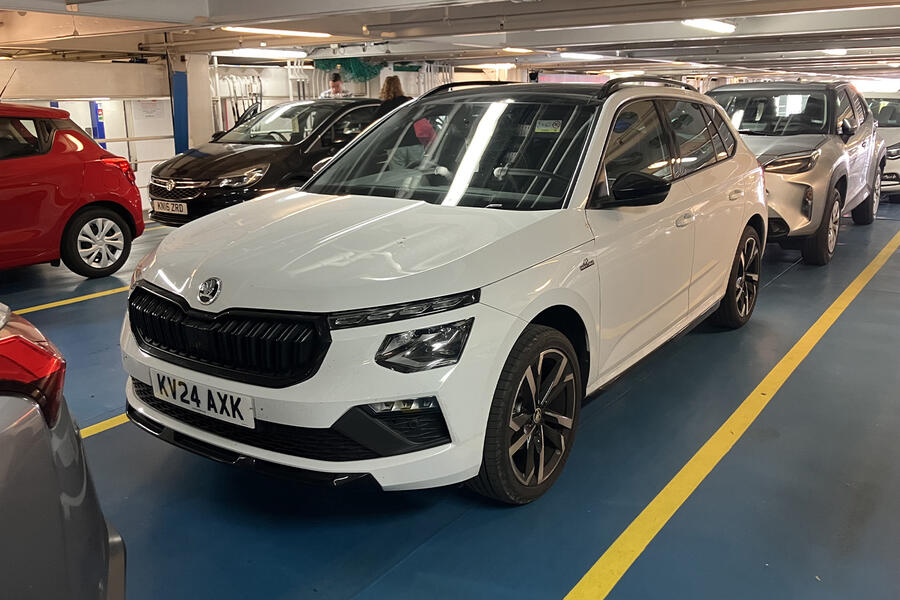





Join the debate
Add your comment
Unfortunately nearly all modern petrol engines have built in "rev hang" as it is one of the ways to reduce emissions and oil consumption. The VAG 1.5TSi "Evo" engine did suffer from hesitation or "kangarooing" when it was new in 2018 onwards (I think that's the correct dates) and only with the manual however most of it was corrected with software updates so I would hope it would have been solved by now on a new car.